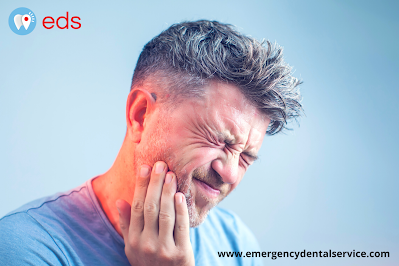What Causes Pain in Cheekbone and Teeth
You can feel a subtle aching to a throbbing pain in your cheeks and teeth. Pain might be severe and go away on its own, or it can get worse over time. It can be challenging to pinpoint the exact reason for cheekbone or tooth pain, so you must go to an emergency dentist. Here are a few frequent causes of pain, as well as several pain-relieving therapies.
Infection of the sinuses
- A sinus infection, commonly known as sinusitis, is a swelling or inflammation of the sinus tissue. It is the cavity near your nose that is filled with air. You have four paranasal sinuses, the largest of which (the maxillary sinus) is positioned between your cheekbones in your jaw.
- Runny nose, headaches, nasal congestion, and facing pain in the cheeks indicate inflamed sinus tissue. Your teeth may become inflamed due to the pain, and it might also require Urgent Dental Care.
Abscess of the tooth
- Bacteria in your mouth can cause a tooth abscess as a result of poor dental hygiene. It is an infection that affects your teeth, gums, and bones, but it can spread to your cheeks and surrounding tissue if left untreated.
- An abscess also increases osteomyelitis. An infection that spreads to your bone, such as your jawbone, is known as osteomyelitis. A severe jaw or facial discomfort, fever, chills, sweating, and exhaustion are symptoms of this infection.
TMD (Temporomandibular Joint Dysfunction)
- It is a condition that affects the joints. Your temporomandibular joint connects your jawbone and your skull. It functions as a hinge, allowing you to move your jaw in different directions. It might require emergency dental care.
- Arthritis can cause this joint to become dislocated, injured, or ruined. When eating, chewing, or talking, this creates pain and a cracking or popping sound when moving the jaw.
Remedies
The following home remedies may help relieve discomfort depending on the underlying cause of cheekbone and tooth pain:
- To reduce sinus pressure and congestion, take an over-the-counter medicine.
- Reduce sensitivity in your teeth by avoiding hot and cold meals and drinks.
- Widely chewing gum or yawning should be avoided until the pain subsides.
- Relax your jaw muscles and treat TMJ and teeth grinding symptoms by using stress-relieving practices.
- To stop grinding your teeth at sleep, wear a mouthguard.
Conclusion
Pain in your cheekbones and teeth isn't necessarily significant, and it may go away on its own if you take care of yourself. However, some types of discomfort necessitate medical care. If you experience extreme pain, worsening symptoms, or infection symptoms, see a doctor or 24 Hour emergency dentist very once.


%20900-0633%20-%202025-03-12T130429.775.png)


Comments
Post a Comment